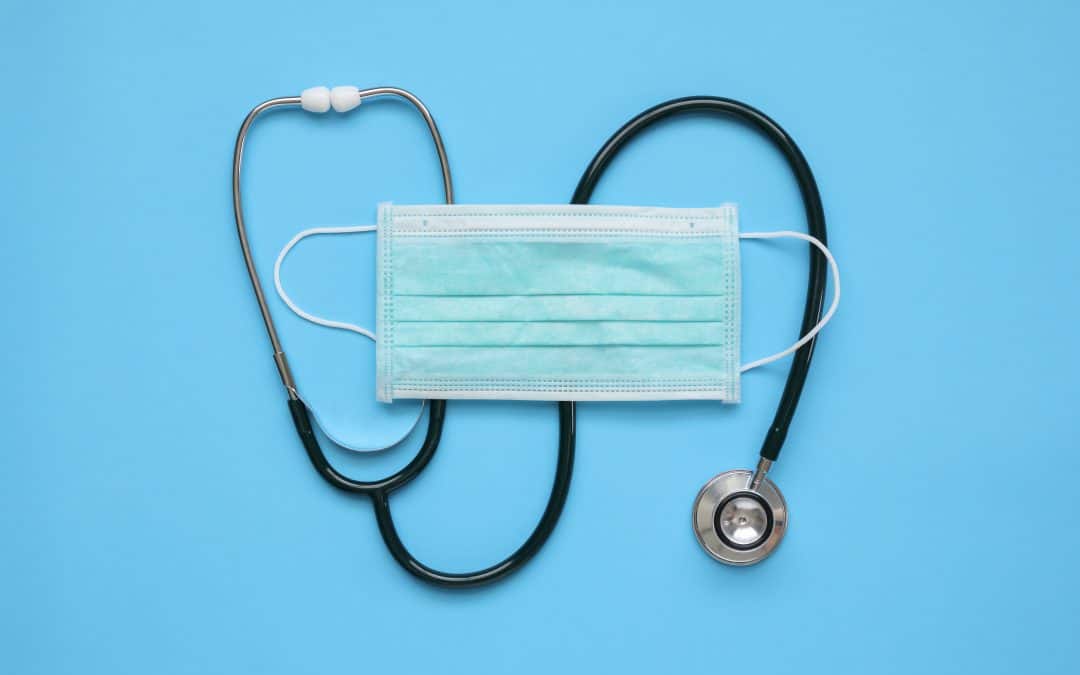If you or a loved one has been infected with coronavirus (COVID-19), you may understandably be concerned about any long-lasting effects. Below, we discuss whether COVID-19 can damage the heart, explore who may be most at risk for heart problems after COVID-19, and explain what to do if you begin experiencing heart-related symptoms.
Can COVID-19 Damage the Heart?
Unfortunately, in some individuals, COVID-19 can cause heart problems. When this occurs, it’s often due to cytokine release syndrome (also known as a “cytokine storm”). The immune system normally produces inflammatory cells and cytokines (proteins that activate the immune response) to fight off COVID-19, but in some cases, this process leads to excessive inflammation. Too much inflammation can cause heart problems such as:
- Arrhythmias (irregular heartbeats)
- Blood clots (which can in turn lead to heart attacks and strokes)
- Congestive heart failure
- Myocarditis (inflammation of the heart muscle)
- Pericarditis (inflammation of the tissue surrounding the heart)
COVID-19 can also damage the heart if it reduces the amount of oxygen that can reach the rest of the body through the bloodstream, whether due to blood vessel inflammation or fluid buildup in the lungs’ air sacs. When this happens, it can force the heart to work harder than it normally would, leading to tissue damage or even heart failure.
Who’s at Risk for Heart Problems After COVID-19?
Anyone who becomes infected with COVID-19 can develop heart-related complications, even if they don’t have any history of cardiovascular disease. With that said, individuals with heart disease (or risk factors for heart disease) have an especially high risk of developing heart problems after COVID-19. This includes people with conditions such as:
- Coronary artery disease
- Diabetes
- High cholesterol
- Hypertension (high blood pressure)
- Obesity
Notably, individuals with severe cases of COVID-19, for example, those who were on a ventilator or admitted to the intensive care unit (ICU), also have a higher likelihood of subsequently developing heart problems.
What to Do if You Start Experiencing Heart Symptoms
If you begin experiencing heart-related symptoms after being diagnosed with COVID-19—such as chest pain, dizziness, heart palpitations, lightheadedness, shortness of breath, or tachycardia (an increased heart rate)—you should promptly contact a medical provider so that they can examine you and order any necessary testing. But if you’re experiencing life-threatening symptoms—such as severe chest pain, difficulty breathing, or blue-tinted skin—then you should call 911 or get to a nearby emergency room as quickly as possible.
COVID-19 Testing Near You
If you’re experiencing COVID-19 symptoms or you’ve been in close contact with someone who tested positive for the virus, it’s important that you promptly get tested. Fortunately, if you’re in any of the following locations, you can rely on Jovive Health for COVID-19 testing services:
You can choose whether to reserve an appointment with us ahead of time or simply walk in at the time that’s most convenient for you. Once we’ve spoken with you about your condition, we’ll determine whether testing is appropriate, and if so, which test will best serve your needs (we offer rapid antigen testing and viral PCR testing). And if it turns out that you do have COVID-19, you can count on our experienced team to provide you with customized recommendations about how to relieve your symptoms.


